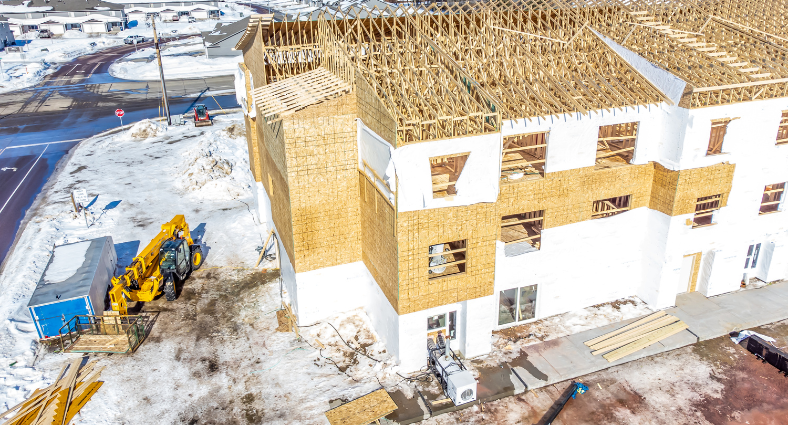Are Apartment Complexes Residential or Commercial
Are apartment complexes considered residential or commercial properties? This may seem like a simple question, but the answer is more complex than you may think. On one hand, apartments are places where people live and can be seen as purely residential spaces.
However, on the other hand, they also generate income for their owners and have many features typically associated with commercial properties, such as amenities and business offices. So, which category do they truly fall under?
I will discuss the difference between residential and commercial properties in terms of designations, financing options, rules and regulations, and more to determine where exactly apartment complexes fit in. Join me as I unravel the complexities of defining these spaces and gain a better understanding of what sets them apart from traditional homes or office buildings.
Are Apartments Considered Residential or Commercial Property
Apartment complexes can be categorised as either residential or commercial real estate based on certain criteria, predominantly the number of units they contain. The distinction between these two categories has implications for financing, taxation, zoning, and regulatory compliance.
Residential Real Estate:
This category typically includes properties designed for non-commercial home use, serving as private living quarters for individuals or families. Smaller multifamily properties, often with at least five units, fall into this category. These properties are primarily intended for living purposes and are not operated as businesses.
Commercial Real Estate:
When a multifamily property contains five or more units, it is generally classified as commercial real estate. This classification is because such properties are operated as businesses, generating income through renting out units to tenants. This category encompasses a broader range of properties beyond apartments, including hotels, retail properties, and more, all of which are used for business operations. Apartment buildings, regardless of their residential function, are considered commercial if they lease space to others and consist of multiple units.
While apartment complexes serve the residential needs of individuals and families, their classification hinges on the scale of the property. Smaller complexes are typically viewed as residential properties due to their primary focus on providing living spaces. In contrast, larger complexes with five or more units are deemed commercial because of their operational focus on generating rental income, thus aligning them with business operations rather than solely residential purposes.
Why Does it Matter Whether an Apartment is Commercial or Residential?
The classification of an apartment complex as either commercial or residential has significant implications in several key areas. Understanding these distinctions is crucial for owners, investors, and managers to make informed decisions and ensure compliance with applicable laws and regulations.
Financing:
The process for securing a loan for a commercial property differs significantly from that of a residential property. Commercial real estate loans often have higher interest rates and may require a larger down payment. Additionally, the qualification criteria for borrowers are typically more stringent, focusing on the business’s financial health rather than the individual’s creditworthiness.
Taxation:
The tax treatment of commercial and residential properties varies. Owners of commercial properties can claim certain deductions, such as those related to property depreciation, more extensively than residential property owners. The specifics can greatly affect the overall profitability of the investment.
Zoning and Legal Regulations:
Zoning laws dictate where a commercial property can be located, which can significantly impact the potential for rental income. Additionally, commercial properties are subject to different building codes, safety standards, and legal requirements than residential properties, which can influence operational costs and legal liabilities.
Lease Terms:
Commercial leases are typically longer than residential leases, offering more stable and predictable income over time. However, this also means that adapting to market changes can take time and effort. Furthermore, commercial leases often pass more operational costs onto the tenant, such as taxes, maintenance, and insurance.
Income Generation:
The primary determinant of whether an apartment complex is considered commercial is its income-generating nature. If the complex is operated as a business to generate rental income, it may fall under the commercial property category.
Property Management:
Managing a commercial property requires a different set of skills and knowledge compared to managing a residential property. For instance, understanding the complexities of commercial leases and the specific needs of commercial tenants is essential. This can influence the choice of property management company or the need for specialized staff.
Construction Takeoff Services:
When evaluating the classification of apartment complexes, the use of Construction Takeoff services becomes essential for accurately estimating construction costs, materials needed, and labor expenses. These services provide detailed quantity takeoffs and cost breakdowns crucial for budgeting and project planning, particularly for larger complexes that may have commercial aspects.
Investment Strategy and Returns:
Commercial properties often offer higher yield potentials due to longer lease terms and the ability to charge higher rents. However, they also come with different risk profiles, including sensitivity to economic cycles. An investor’s strategy, whether seeking steady income or capital appreciation, can be better served by one type over the other.
Understanding these differences enables stakeholders to navigate the complexities of real estate investment and management more effectively.
To read more articles visit TechyBusinesses
Conclusion
The question of whether apartment complexes are considered residential or commercial properties is a nuanced one. While there are certainly elements of both categories present in these types of properties, it ultimately depends on the context and intended use of the building. Apartment complexes provide individuals with the comfort and convenience of living in a home while also offering lucrative investment opportunities for businesses. Apartment complexes play an important role in our economy and society, providing housing options for individuals and families while also contributing to local economies through job creation and tax revenue. Whether you’re a tenant looking for a new place to call home or an investor seeking to diversify your portfolio, there’s no denying that apartments offer something for everyone. So next time someone asks if apartment complexes are residential or commercial, the answer may just be “both.”

